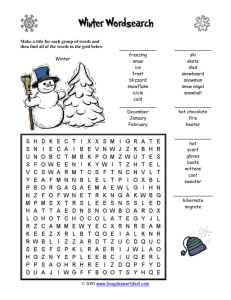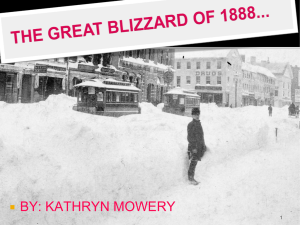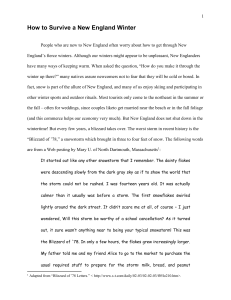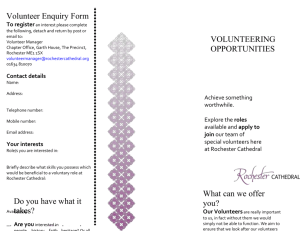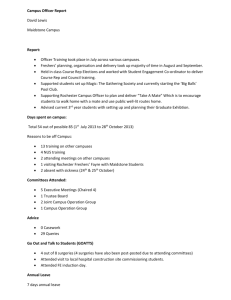Ask the Archivist: Can We Have a Snow Day?
advertisement
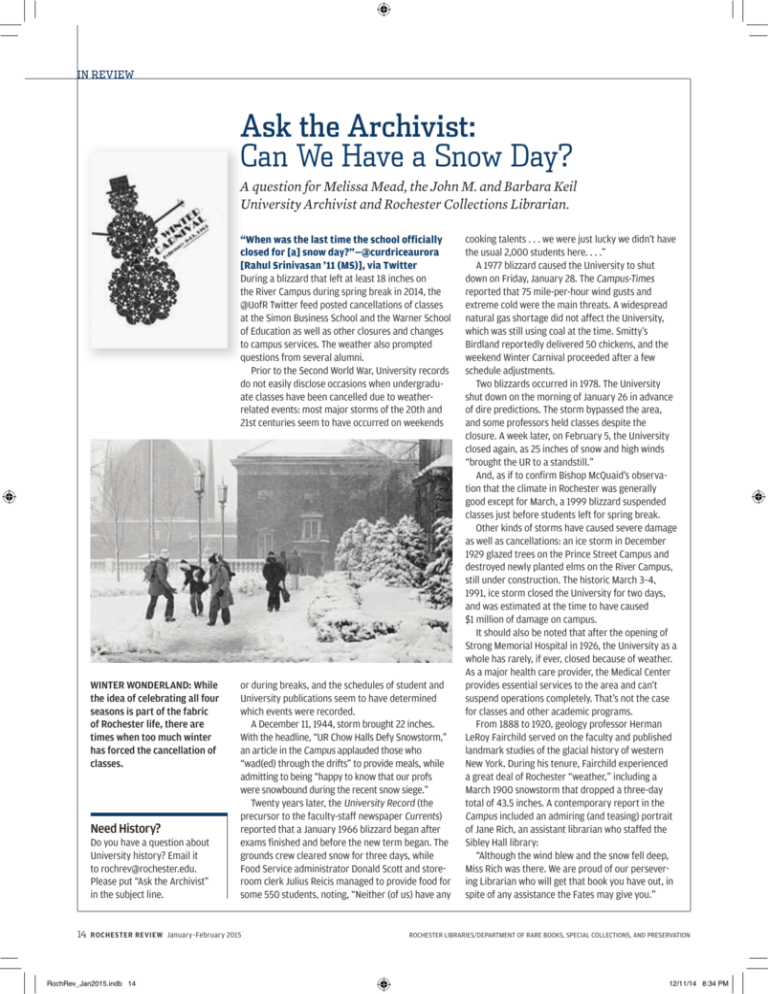
IN REVIEW Ask the Archivist: Can We Have a Snow Day? A question for Melissa Mead, the John M. and Barbara Keil University Archivist and Rochester Collections Librarian. “When was the last time the school officially closed for [a] snow day?”—@curdriceaurora [Rahul Srinivasan ’11 (MS)], via Twitter During a blizzard that left at least 18 inches on the River Campus during spring break in 2014, the @UofR Twitter feed posted cancellations of classes at the Simon Business School and the Warner School of Education as well as other closures and changes to campus services. The weather also prompted questions from several alumni. Prior to the Second World War, University records do not easily disclose occasions when undergraduate classes have been cancelled due to weatherrelated events: most major storms of the 20th and 21st centuries seem to have occurred on weekends WINTER WONDERLAND: While the idea of celebrating all four seasons is part of the fabric of Rochester life, there are times when too much winter has forced the cancellation of classes. Need History? Do you have a question about University history? Email it to rochrev@rochester.edu. Please put “Ask the Archivist” in the subject line. or during breaks, and the schedules of student and University publications seem to have determined which events were recorded. A December 11, 1944, storm brought 22 inches. With the headline, “UR Chow Halls Defy Snowstorm,” an article in the Campus applauded those who “wad(ed) through the drifts” to provide meals, while admitting to being “happy to know that our profs were snowbound during the recent snow siege.” Twenty years later, the University Record (the precursor to the faculty-staff newspaper Currents) reported that a January 1966 blizzard began after exams finished and before the new term began. The grounds crew cleared snow for three days, while Food Service administrator Donald Scott and storeroom clerk Julius Reicis managed to provide food for some 550 students, noting, “Neither (of us) have any 14 ROCHESTER REVIEW January–February 2015 RochRev_Jan2015.indb 14 cooking talents . . . we were just lucky we didn’t have the usual 2,000 students here. . . .” A 1977 blizzard caused the University to shut down on Friday, January 28. The Campus-Times reported that 75 mile-per-hour wind gusts and extreme cold were the main threats. A widespread natural gas shortage did not affect the University, which was still using coal at the time. Smitty’s Birdland reportedly delivered 50 chickens, and the weekend Winter Carnival proceeded after a few schedule adjustments. Two blizzards occurred in 1978. The University shut down on the morning of January 26 in advance of dire predictions. The storm bypassed the area, and some professors held classes despite the closure. A week later, on February 5, the University closed again, as 25 inches of snow and high winds “brought the UR to a standstill.” And, as if to confirm Bishop McQuaid’s observation that the climate in Rochester was generally good except for March, a 1999 blizzard suspended classes just before students left for spring break. Other kinds of storms have caused severe damage as well as cancellations: an ice storm in December 1929 glazed trees on the Prince Street Campus and destroyed newly planted elms on the River Campus, still under construction. The historic March 3–4, 1991, ice storm closed the University for two days, and was estimated at the time to have caused $1 million of damage on campus. It should also be noted that after the opening of Strong Memorial Hospital in 1926, the University as a whole has rarely, if ever, closed because of weather. As a major health care provider, the Medical Center provides essential services to the area and can’t suspend operations completely. That’s not the case for classes and other academic programs. From 1888 to 1920, geology professor Herman LeRoy Fairchild served on the faculty and published landmark studies of the glacial history of western New York. During his tenure, Fairchild experienced a great deal of Rochester “weather,” including a March 1900 snowstorm that dropped a three-day total of 43.5 inches. A contemporary report in the Campus included an admiring (and teasing) portrait of Jane Rich, an assistant librarian who staffed the Sibley Hall library: “Although the wind blew and the snow fell deep, Miss Rich was there. We are proud of our persevering Librarian who will get that book you have out, in spite of any assistance the Fates may give you.” ROCHESTER LIBRARIES/DEPARTMENT OF RARE BOOKS, SPECIAL COLLECTIONS, AND PRESERVATION 12/11/14 8:34 PM
